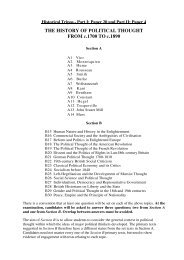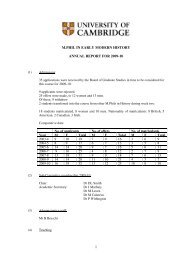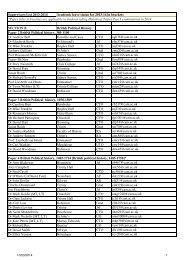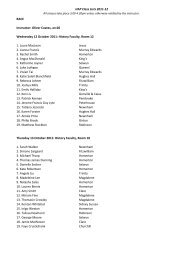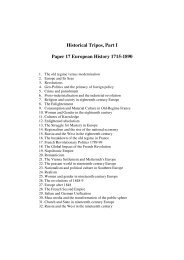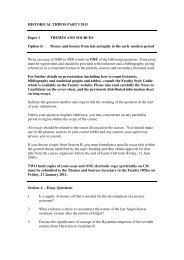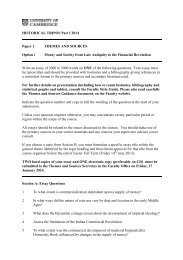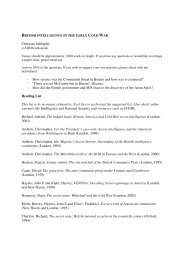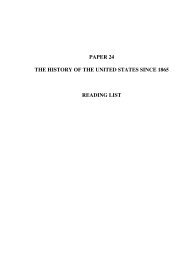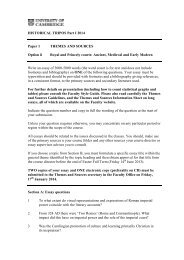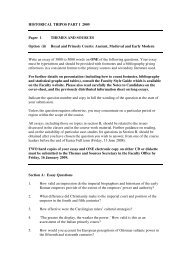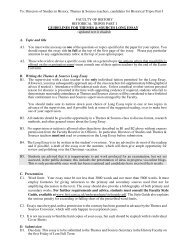Course Handbook - Faculty of History - University of Cambridge
Course Handbook - Faculty of History - University of Cambridge
Course Handbook - Faculty of History - University of Cambridge
You also want an ePaper? Increase the reach of your titles
YUMPU automatically turns print PDFs into web optimized ePapers that Google loves.
Lovelace conveyed the king’s command to the bishops ordering them to refrain from preaching, but Bishop<br />
Outhwaite was not dissuaded.’<br />
In general, use lower case for institutions, government agencies, etc.: the cabinet, privy council, royal<br />
commission, select committee, member <strong>of</strong> parliament (but MP), the opposition. But use upper case to avoid<br />
ambiguity or where convention insists: the Bank <strong>of</strong> England, King’s Bench, the Inner Temple, the House <strong>of</strong><br />
Commons, the Star Chamber.<br />
Use upper case for political parties except where ambiguity is impossible: so, whig, tory, but Conservative<br />
government, the Liberal Party, the Labour opposition.<br />
Use lower case for historical systems, periods, events, and religions, wherever possible: Washington treaty,<br />
the British empire, home rule, the commonwealth, the middle ages, puritans, parliamentarians. But use upper<br />
case to avoid ambiguity or where convention insists: the Congress <strong>of</strong> Vienna, the Renaissance, the<br />
Enlightenment, the First World War, the French Revolution, the Third Republic, the Second Empire, the<br />
Union; Catholic, Protestant, Muslim, Jewish, Wesleyan, Quaker.<br />
Note that words derived from names <strong>of</strong> persons take upper case: Jesuit, Calvinism, Bonapartist, Marxism.<br />
Use lower case for <strong>of</strong>ficial publications (e.g. the report <strong>of</strong> the select committee on agriculture, a bill, an act,<br />
the act, the bill), except for the names <strong>of</strong> specific items (e.g. the Stamp Act).<br />
Examples:<br />
an act<br />
battle <strong>of</strong> Waterloo<br />
bishop <strong>of</strong> Durham<br />
Bishop Tenison<br />
British empire<br />
cabinet<br />
Catholics<br />
chiefs <strong>of</strong> staff<br />
the church<br />
the Commons<br />
commonwealth<br />
council <strong>of</strong> state<br />
crown<br />
duke <strong>of</strong> Portland<br />
Duke William<br />
First World War<br />
foreign secretary<br />
French Revolution<br />
houses <strong>of</strong> parliament<br />
king<br />
King’s Bench<br />
Labour opposition<br />
lord mayor<br />
member <strong>of</strong> parliament<br />
middle ages<br />
ministry <strong>of</strong> defence<br />
parliamentarians<br />
Presbyterian<br />
prime minister<br />
privy council<br />
Protestants<br />
Prussian Diet<br />
Seven Years’ War<br />
the state<br />
tory<br />
the Union<br />
Washington treaty<br />
Whig<br />
31





